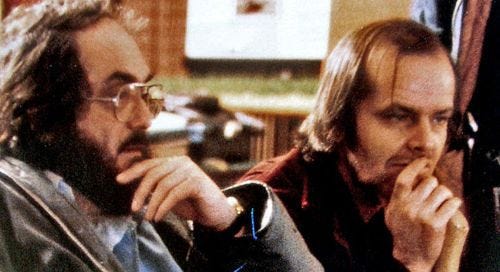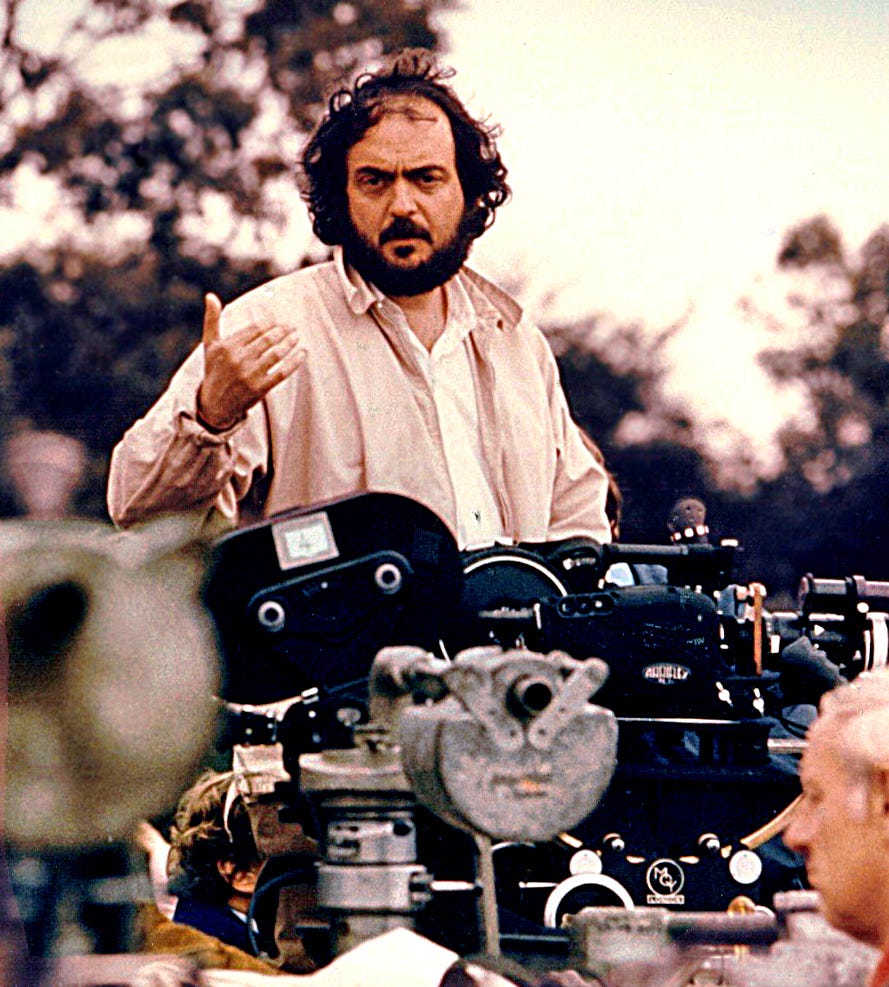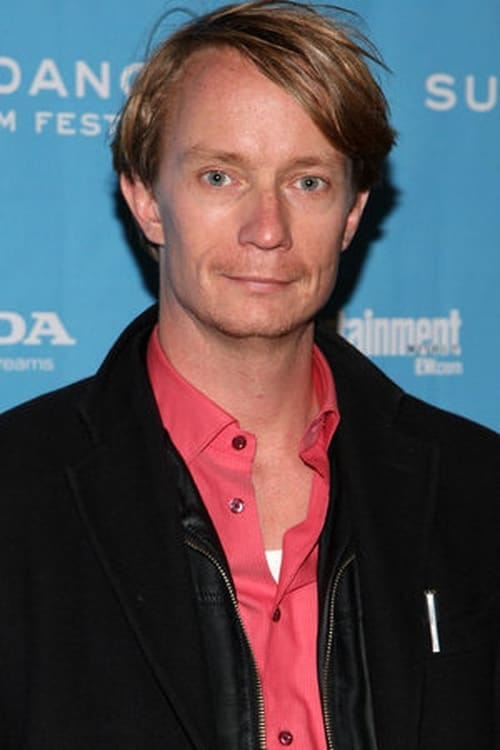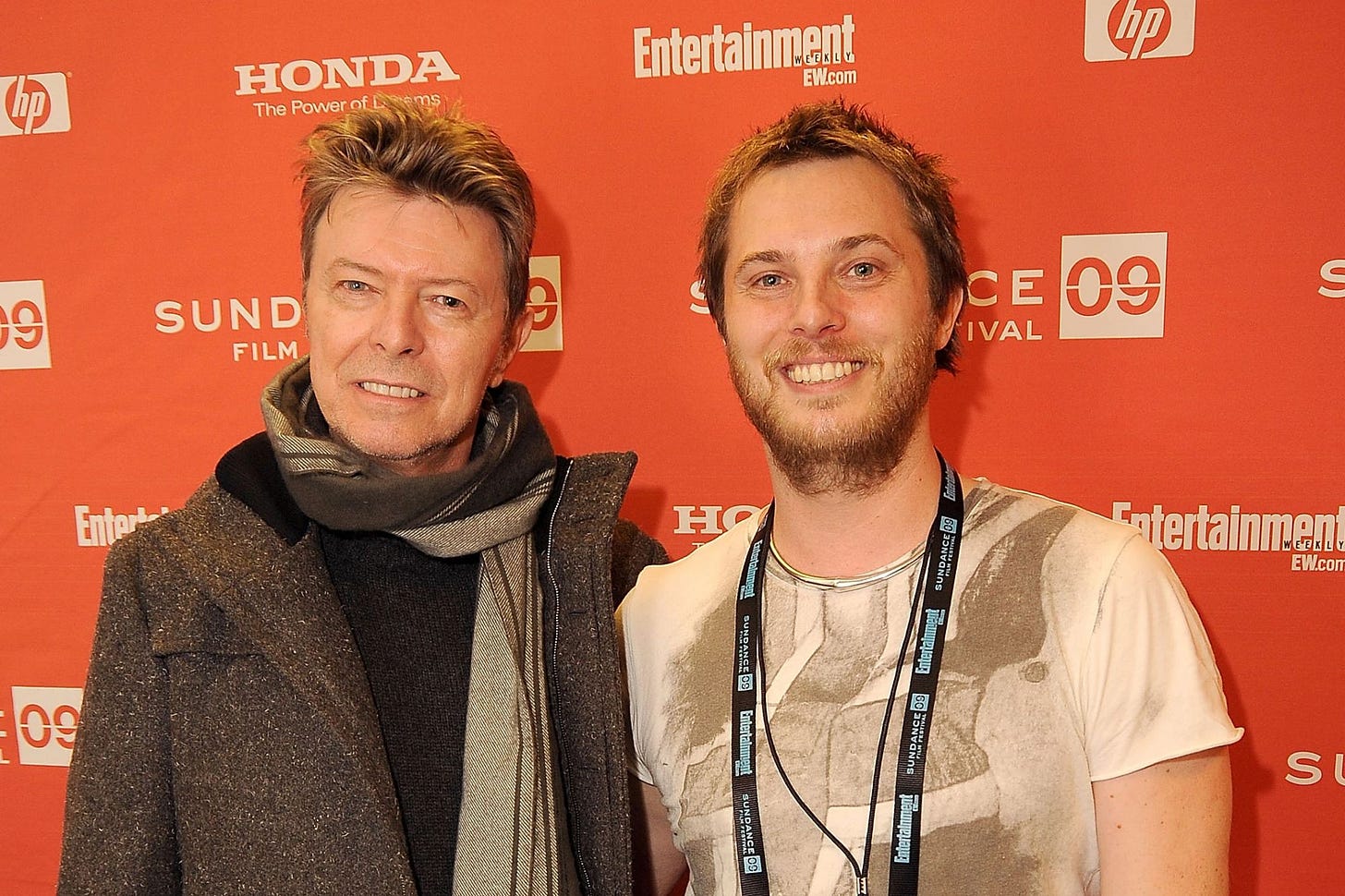Amidst the hum of modern Hollywood, Clara sits at a coffee shop, tablet in hand. The scene around her is emblematic of the era – individuals engrossed in their devices, trailers for upcoming streaming exclusives play on loop on a nearby screen, and a couple at a nearby table mourn the loss of their favorite streaming channel.
Clara (voiceover): “The golden age of cinema, preserved on reels, gave way to DVDs, and now, even those are relics. Today, films fight for a spot amidst a tsunami of media on streaming platforms. The big screen’s charm remains, but its offspring are ever-evolving.”
Clara is writing an oral history of the making of Moon, the 2009 sci-fi classic about a lone astronaut-technician on, well, the moon. As Clara pens her thoughts, she references various materials for her feature article, including the original trailer, clips of interviews, past movie reviews, and director's notes.
Excerpt from Movie Review (displayed on Clara's tablet): “Moon - a masterful exploration of isolation and identity. Rockwell delivers a poignant performance that captures the essence of solitude against the stark vastness of space. A must-watch!”
Meeting with Norm “Gaffer” Gaffigan:
Clara meets Gaffigan, a lifer in the movie business, at an old Hollywood bar. A place where industry veterans hang out and reminisce about the ‘good old days.’
Gaffigan, after a few sips of his drink: “You know, the making of Moon has a kind of a prologue. There’s a back-story that’s kind of mind-blowing .”
Clara, intrigued: “Go on.”
Gaffigan: “It involves Stanley Kubrick of all people. After he made The Shining, Kubrick felt the weight of Stephen King’s well-known dislike of his movie. And not just King — the movie was nominated for a couple of Razzies.”
He — Kubrick — was stung by the criticism especially because he has tried so hard to show Nicholson’s descent into his mind's abyss, his slow crawl to insanity. He leaned on Nicholson and they shared their mutual disappointment at how the film was received.
It was during that time that Jack mentioned that he knew this young writer, Nathan Parker.
Parker had the broad outline of a story about an astronaut isolated on the moon, with only an AI for company. Well, of course this got Kubrick’s attention after the success of 2001. But in this story, unlike 2001, the lines between reality and imagination blur.”
Clara, absorbing this: “And Kubrick was on board?”
Gaffigan nods: “Absolutely. He saw real potential for personal story about how hope gradually gives way to panic and despair. But unlike The Shining, you feel for Sam Bell, the protagonist. He actually has a character arc, unlike Jack Torrance.”
Gaffigan, leaning in closer: “Nicholson loved it for the depth. In The Shining, he became a monster, but in Lunar Echo — that was the working title, by the way — he saw the chance to become human. The audience would witness a man's internal battle, his fear, his struggle for hope amidst hopelessness, and above all, his desperate cling to sanity. It was different from the raw ferocity of Jack Torrance; this was about peeling back layers to expose a fragile core.”
Clara, scribbling notes: “So what happened? Why did it never get made?”
Gaffigan sighed deeply: “Oh, Hollywood is fickle. Kubrick had the vision, Nicholson had the passion, but the studios ... they were still smarting from King’s review of The Shining. They hesitated, funds got tied up, they had to rearrange their sock drawers, whatever … other projects came calling. Lunar Echo drifted into the shadows of Development Hell. Happens all the time.”
Clara, contemplative: “Then how did it transform into Moon?”
Gaffigan: “Nathan Parker had a dream. He held onto that dream. Years passed, technology changed, and the industry evolved. The story found its way to the director, Duncan Jones. Did you know he’s David and Angie Bowie’s son?”
Clara: “No, I did not! Ground control to Major Tom, indeed.”
Gaffigan: “Jones recognized its potential and, backed by Sony Pictures and some others, the story got a second chance. Lunar Echo found its new life as Moon.”
Clara looks away, taking in the city's skyline: “The best film Kubrick and Nicholson never made.”
Gaffigan: “I like to call it a pre-make of Moon.”
Clara: “What do you mean?”
Gaffigan: “Well, a re-make is a second version of a movie with different stars. A pre-make is another version, an earlier version, back in time, with different stars, stars from that earlier era. Think about it. The next time you watch Moon, imagine Nicholson in the role of Sam Bell.”
Clara: (long pause) “Oh. My. God. It’s perfect. Rockwell is great. But Nicholson…oh my god, he would have been perfect.”
Gaffigan chuckles: “Right? Hollywood’s full of stories, kid. And they’re not all up on the screen.”
The scene fades to black with the two of them, facing each other, backlit by a neon Budweiser sign.









